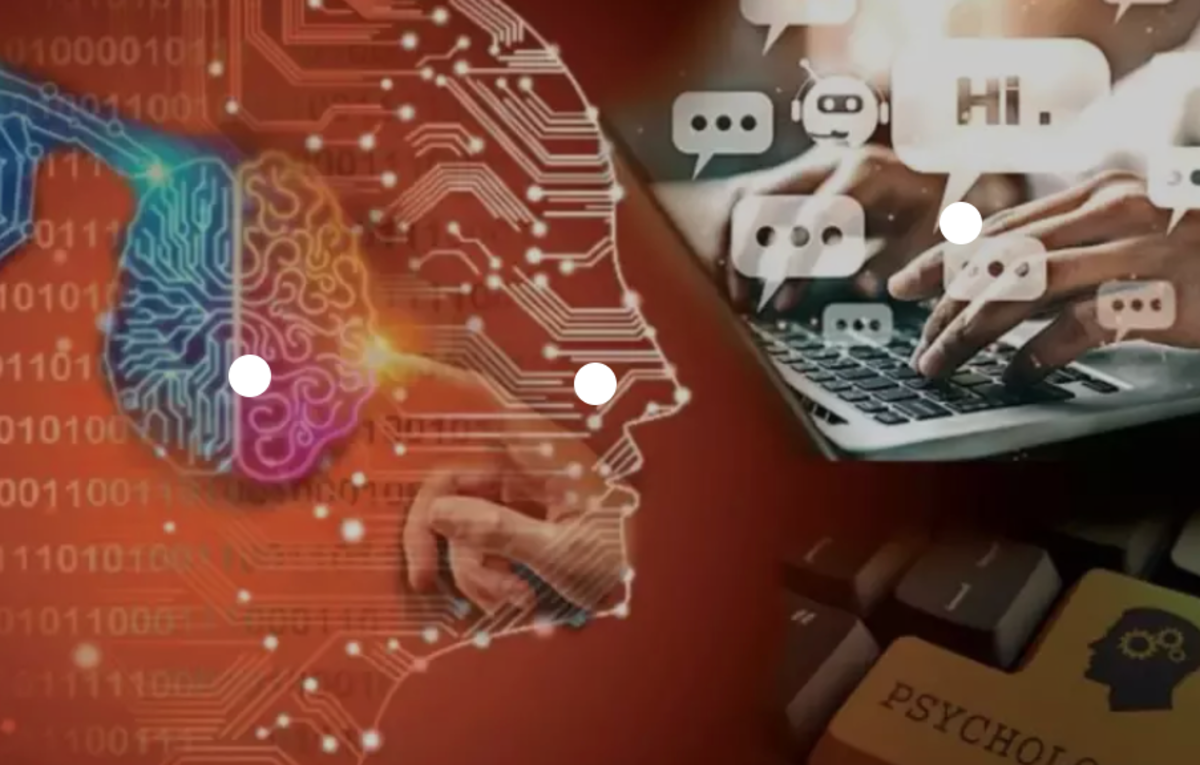By Dr D Narayana
In today’s fast-paced world, stress has become commonplace in people’s lives and can lead to serious mental health problems like depression and anxiety. Unfortunately, the growth in mental health problems is alarming and there is a significant gap in the availability of trained professionals to handle the growing number of cases. Therefore, there is a great need for a technology-based intervention to detect and address these problems early.
Recently, a post in the IEEE Journal suggested that Artificial Intelligence (AI) and machine learning (ML) could be used to identify and reduce stress and anxiety. Using AI-powered conversational wellness bots can help people who are struggling to deal with stress, especially in cases where person-to-person interaction is limited or not possible.
What is a conversational wellness bot?
A conversational wellness bot is an AI-assisted chatbot designed to interact with people and provide therapy or support in the form of a conversation. The bot uses Natural Language Processing (NLP) algorithms to analyze the user’s words and tone of voice and respond accordingly.
The bot interacts with the user to understand how they feel and assesses the severity of their mental health status by classifying it as stress, anxiety or depression. The bot can also identify the trigger sources of these mental health problems. Once the bot identifies the problem, it takes the user through various de-stress techniques such as Cognitive Behavioral Therapy (CBT), Rogerian therapyand Positive Psychology. These techniques can be delivered through conversational mode, making it easy for users to receive therapy at any time of the day.
Advantages of the conversational wellbeing bot
One of the most significant advantages of the conversational wellness bot is that it can provide users with an outlet to express their emotions. In many cases, people may find it difficult to discuss their problems with a therapist or friend. The bot provides a confidential and non-judgmental environment that makes it easy for people to talk about their emotions and feelings.
Another significant advantage of the bot is that it can identify mental health problems and provide therapy or support at an early stage. Early detection of mental health problems is crucial to prevent complicated and dangerous mental situations. The bot’s AI-assisted capabilities allow it to detect early signs of mental health issues and provide therapy or support to prevent further complications.
AI-assisted stress detection and counseling app for Indian population
The proposed AI-assisted stress screening and counseling app aims to target the Indian population, where mental health issues are growing at an alarming rate. According to a report from the World Health Organizationone in four people in India is affected by mental health problems.
The app would be available as a mobile app that can interact with users in their language, analyzing their words and tone of voice to understand their emotions. It would provide users with an outlet to express their emotions and help them avoid complicated and dangerous mental situations. The app would also use ML algorithms to provide users with therapy or support based on their mental health condition. The app would also give users access to trained professionals if the bot identifies a serious mental health issue that requires human intervention.
It is also essential to mention that psychologists must constantly train and update the intelligence of any machine to improve the accuracy and performance of the bot. This constant monitoring will allow the AI to suggest multiple treatment options for patients, from which psychologists can choose the best.
Are we on the brink of a revolution?
The use of AIML in mental health treatment is still in its early stages, but it holds great promise for the future. As more people become comfortable using digital tools for mental health support, the use of AI-powered chatbots and other tools is likely to become more widespread. This could help address the growing shortage of mental health professionals, particularly in developing countries where access to care is limited.
Furthermore, the ability to deliver personalized, accessible and affordable mental health support to people in need has significant potential to improve mental health outcomes. However, as with any new technology, there are potential ethical concerns that need to be addressed. For example, there is a risk that people become too reliant on AI-powered mental health tools and neglect the importance of human connection and support. Additionally, there may be privacy and data security concerns when digital tools store and process sensitive mental health information.
Far ahead
AIML-based mental health support tools are a promising development in the field of mental health care. By offering accessible and personalized support, these tools have the potential to improve mental health outcomes for millions of people around the world. Although it is important to approach these technologies with caution and ensure that they are developed and deployed in a responsible and ethical manner. With the right investment in research and development, we can create a future where mental health support is accessible and affordable for all who need it.
Dr. D. Narayana, Professor, Artificial Intelligence and Machine Learning, Great Learning


